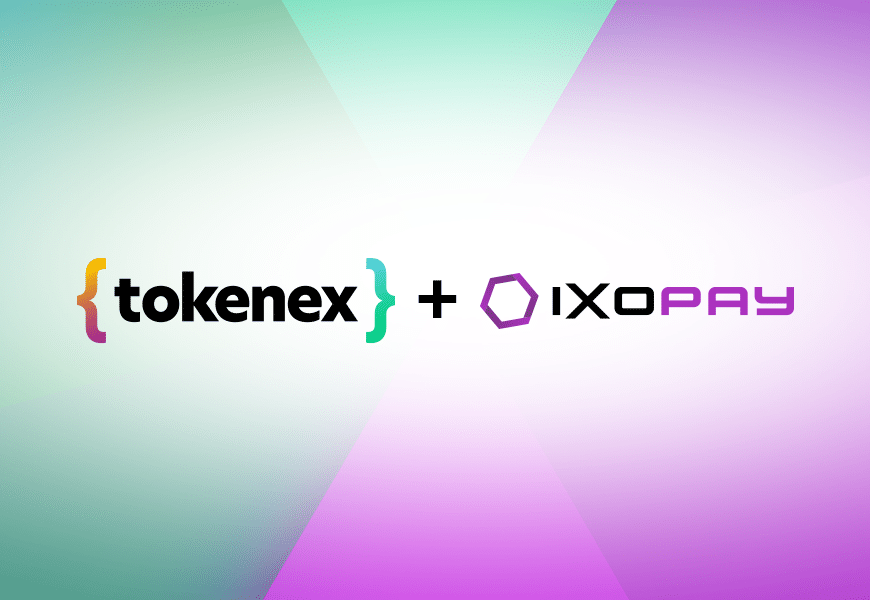Quick Hits:
- Network tokenization is a type of card tokenization specific to each major card network, which exchanges sensitive cardholder data like PANs with a token issued by each brand.
- There are several benefits of businesses using network tokenization, including increased payment security, not introducing risk or scope, maintaining PCI compliance, and better user experiences.
- Network tokens are a key solution to ensure businesses can achieve payment security while maintaining a fast, seamless customer checkout process.
As digital payments become more popular, businesses must ensure that their customers’ cardholder information is secure and provide positive payment experiences for customers. Fraudsters are becoming more adept at obtaining stolen card-not-present information, which they can use to make fraudulent purchases or sell card details on the dark web. Network tokenization is one of several products that can help merchants achieve payment security while maintaining streamlined and frictionless payment flows for customers. Keep reading to discover what network tokenization is and how it can benefit your business.
Discover your network token needs.
What Is Network Tokenization?
Network tokenization is a type of payment card tokenization offered by the major card networks – Visa, Mastercard, Discover, and American Express – that replaces primary account numbers (PANs) and other sensitive cardholder data with a token issued by each card brand.
When used properly, network tokenization ensures secure remote transactions throughout the payment ecosystem by removing the need for merchants or third-party entities to expose themselves to the risk of handling raw PAN and other sensitive cardholder details. Specifically, payment network tokenization exchanges sensitive cardholder data, such as the PAN and expiration date, for a nonsensitive placeholder called a token. Tokens provide the same functionality as the original card data without the associated risk for merchants.

How Network Tokenization Increases Revenue
Increase Repeat Business
While debit and credit cards have relatively long shelf lives, these cards eventually expire within two to five years or become lost, stolen, or damaged before then. When customers receive new cards, they may not have the time or desire to update their cardholder details with merchants. For example, merchants offering recurring subscription services often deal with involuntary churn, which occurs when customers’ accounts end unintentionally due to payment failure issues like expired credit cards on file. To address this, merchants must request updated card data from their customers, which isn’t a foolproof method when involuntary churn represents 20 to 40 percent of churn rates among subscription businesses.
Network tokenization offers a solution to the issue of expired or canceled cards because these tokens are automatically updated in real time. Thus, network tokens help ensure that customers’ cardholder data is always up to date. This solution can help reduce involuntary churn and increase a business’s revenue potential when digital payments are correct and processed on a regular, recurring schedule.
Furthermore, merchants can apply specific rules regarding when, where, and how these tokens are implemented. By using a specific approach, if one token is compromised for one business, it will not negatively impact how other merchants process it for transactions.
Improve Checkout Conversion Rates
One of the most common causes of checkout abandonment is too much friction at the checkout step of the payment experience. Today’s customers want a seamless payment experience that makes it easy to purchase yet still gives them the peace of mind that their payment and personal information are secure. This is why many online businesses offer payment flexibility options like storing cards on file, using one-click checkouts, and mobile wallets. By using network tokenization, merchants can offer a more frictionless payment process that is secure and user-friendly. In turn, this can boost checkout conversion rates and revenue opportunities.
Improve Authorization Rates
A big hurdle in completing a transaction is validating a customer’s identity and payment details. With every transaction, card issuers, acquirers, and merchants must ask, “Is this customer who they say they are?” and “Are they the legitimate owner of this debit or credit card?” Without network tokenization, it is tricky to establish a frictionless checkout experience for customers while meeting strict security and compliance regulations.
The process to authorize customers when using network tokens looks like this:
- The card networks issue the tokens, which are shared with the issuers.
- The issuers then have control and visibility over the merchant’s tokens, making it easier to authorize transactions and can help boost authorization rates.
- Once the issuers decide, they will notify the merchants of their authorization responses.
How Network Tokenization Reduces Payment Declines
Managing payment fraud is a top priority for most businesses today. It’s no surprise that this is a concern when card-not-present fraud is predicted to cost merchants, card issuers, and acquirers an estimated $34.66 billion this year. The pandemic has aggravated this fraud as people do more online shopping than ever.
Businesses must achieve a balance of not letting too much fraud impact their revenue and harm their reputation while not being so over-protective that they decline payments from legitimate customers. Indeed, false payment declines are one of the costliest mistakes for companies. In January 2022, the total value of declined payments in the U.S. was $11.1 billion, according to recent PYMNTS research.
Businesses can use network tokens to increase their payment security strategy to address this payment issue. These tokens do not expire, become suspended, or require updates due to expired dates or fraudulent activity. If a fraudulent transaction is made with one merchant, this specific token doesn’t impact other network tokens within the payment ecosystem. In turn, these tokens can help reduce businesses’ fraud-to-sales ratios and payment declines, leading to higher payment success rates. It’s important to note that even if cybercriminals gain access to tokenized data, they cannot use it because it’s only a nonsensitive placeholder for the raw cardholder information.
How Network Tokenization Improves the Customer Experience (Safer Payments)
When merchants prioritize creating a safe, seamless, and frictionless online payment process for customers, this leads to a better customer experience. Almost 35 percent of cardholders stop shopping online with a merchant if their card is declined once. Over $331 billion is lost due to false payment declines, which directly impact businesses.
What can businesses do to optimize their checkout processes for customers? Using network tokens means customers don’t need to worry about updating expired payment methods stored on their user accounts. After the cardholder is authenticated, these tokens do not require a verification method like a CVC/CVV to process payments. This is ideal because customers may forget or enter the wrong verification code, which could lead to a false decline and missed sales opportunities for merchants.
Are you following us on LinkedIn?
Ready to Improve Your User Experiences and Payment Security?
Would you like to maximize your revenue potential, reduce fraud and payment declines, automatically update card-on-file accounts, and improve your customer experience? If so, consider looking into a payment solution like network tokenization. Your customers can enjoy an optimized checkout experience, and you can have the peace of mind that cards will be safe and up to date, helping establish a dependable revenue stream.
Transactions using network tokens can qualify for higher authorization rates and reduced interchange fees compared to standard provider tokens, which can also help businesses maximize their profits. Don’t take a chance with a payment flow that is either insecure or makes it overly complicated for customers to purchase. Contact a cloud tokenization platform like TokenEx today to learn how network tokenization can help you achieve your payment and security goals necessary to stay competitive and successful in your market.















